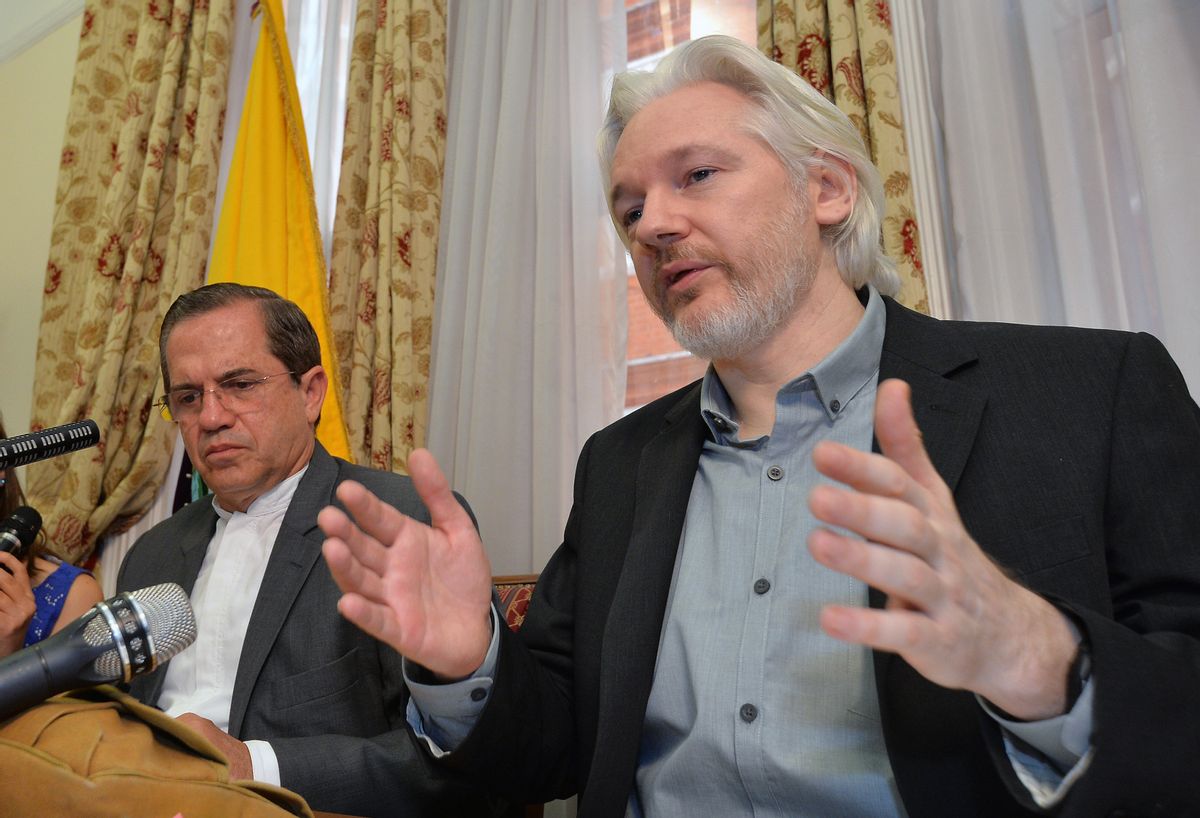Julian Assange’s internet access was abruptly cut off by the Ecuadorian Embassy on Monday, prompting speculation that the decision was connected to his release of classified information potentially damaging to Hillary Clinton’s presidential campaign.
Within hours of the shutdown, WikiLeaks sent out a tweet confirming that Assange had been cut off by the London-based embassy where he's been staying since he was granted asylum in 2012. As the tweet pointed out, the interference occurred while Assange was in the middle of releasing transcripts of Clinton’s speeches to Goldman Sachs, which the Democratic candidate has refused to disclose throughout the election season. Assange’s role in the 2016 presidential contest has been highly controversial, with Democrats alleging that he has worked with Russian hackers to target Clinton because of Vladimir Putin’s preference for Donald Trump. Assange, on the other hand, has repeatedly claimed that there are threats to his life, pointing to the as-yet unsolved death of a DNC staffer as one example.
WikiLeaks says that “contingency plans” are currently in place, although it hasn’t specified what those plans are. Ecuador has indicated that they still intend to host Assange, although they did not address the subject of his internet access in their tweet responding to the situation. In addition to speculation about possible interference from the American or British governments, there are also reports of tension between Assange and his Ecuadorian hosts - including observations about Assange’s “evident anger” and “feelings of superiority” - which may have also contributed to the decision.



Shares